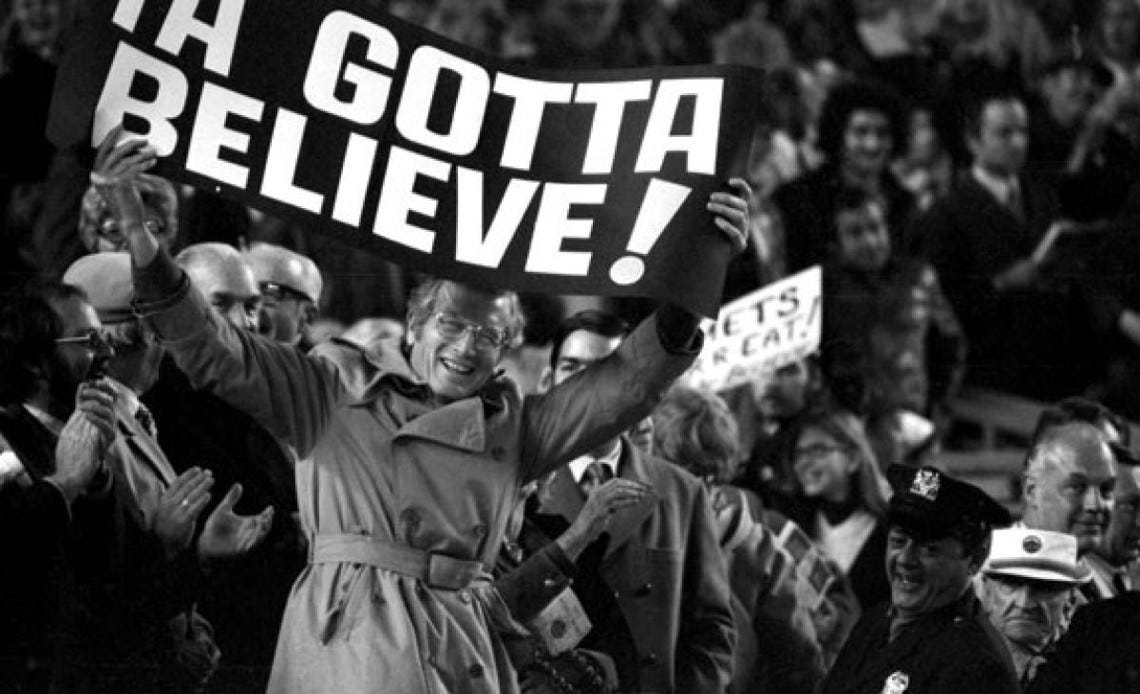McGraw remembered as a firebrand
"I love the game. I get excited. I get nervous. I get mad. I'm Tug McGraw. That's all I want to be."
Tug McGraw had a lot of labels over his 19-year playing career. He was called a “flake,” a “nonconformist” — even his older brother Hank called him a “screwball.”
Personally, I remember McGraw being a firebrand.
I have fond memories of McGraw jumping out of the Mets bullpen cart and pounding his glove against his thigh as he marched to the mound for another relief appearance. It wasn’t showmanship. McGraw was genuinely excited about playing baseball.
"I love the game. I get excited. I get nervous. I get mad. I'm Tug McGraw. That's all I want to be."
The New York Mets signed Frank Edwin “Tug” McGraw in 1961. But truth be told, he was the second member of the McGraw family to receive a professional baseball contract.
After the Mets signed Hank McGraw, Tug’s older brother encouraged Mets scout Roy Partee to take a look at his younger sibling. The elder McGraw was so adamant that he threatened to quit.
“If there isn’t room in this game for my brother, then I don’t want to play either,’” Tug remembers him telling the organization. “The Mets weren’t pleased, but Hank was a good prospect, so they offered me a $7,000 bonus and sent me to their rookie league.”
Tug McGraw made his MLB debut three years later on April 18, 1965 against the San Francisco Giants at Shea Stadium. The first batter he faced was Orlando Cepeda and McGraw struck him out looking.
According to his player profile published by the Society for American Baseball Research (SABR), McGraw was so hyper after his debut that “he was given a tranquilizer to calm down.”
He struggled at the major league level the next two seasons before he learned the screwball, a pitch would transform his career.
“The only other pitcher with a screwball was Jim Brewer of the Dodgers, so the hitters weren’t used to seeing it. I was still pitching well and Gil called me into his office and said, ‘Tug, I have three pieces of advice for you: One, I think you should think about staying in the bullpen permanently. Two, this team needs a late-inning stopper, and I want you to be my stopper. Three, I think you’ll make a lot more money as a reliever than as a starter. Now it’s up to you.’ The rest is history.” - Tug McGraw
In late August 1973, with the New York Mets in last place, Chairman of the Board M. Donald Grant visited the clubhouse to offer the team a motivational message.
Meanwhile, McGraw was fresh off a session with motivational speaker Joe Badamano who repeatedly reminded him:
“Joe kept saying, ‘You’ve got to believe in yourself,” McGraw said years later. “If I didn’t believe, I could never do it. I had to stop worrying, start thinking positively. ‘You gotta believe, Tug.’”
What happened next became the seminal moment of his career. McGraw, still fired up from his meeting with Badamano jumped on Grant’s message.
“I began jumping around the lockers, grabbing guys and yelling, ‘Do you believe? Ya Gotta Believe!’”
Grant appeared baffled by McGraw’s hysterical rant. Ed Kranepool told McGraw that Grant wasn’t happy and he should go straighten it out. McGraw did.
Grant told McGraw he was offended by the outburst and “the only thing that will keep you here is if we start winning some ballgames.”
The “Ya’Gotta Believe” rally cry was born. McGraw’s passion and performance led the 1973 Mets from 10 games back to a National League East title. Over his last 19 appearances of the ‘73 season, McGraw pitched 38 innings allowing two earned runs (0.47 ERA) including saves in eight straight appearances.
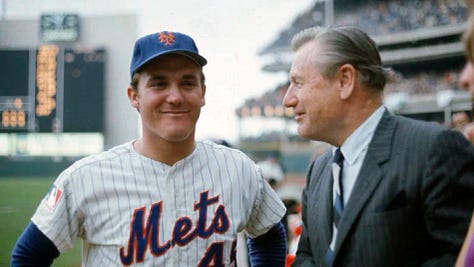
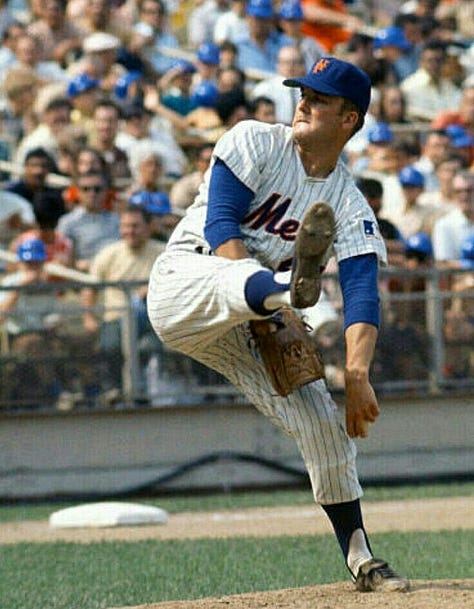
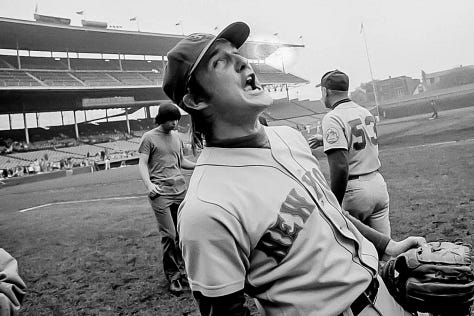
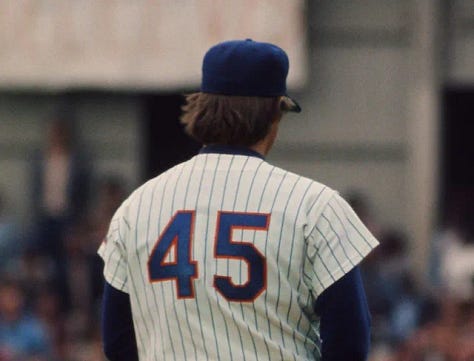
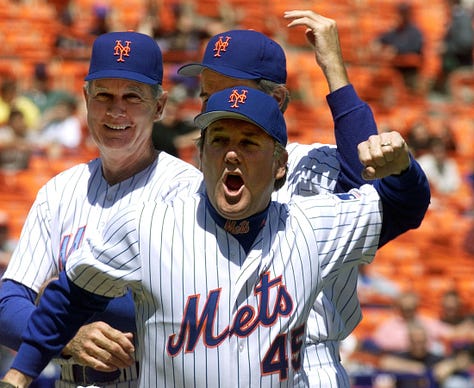
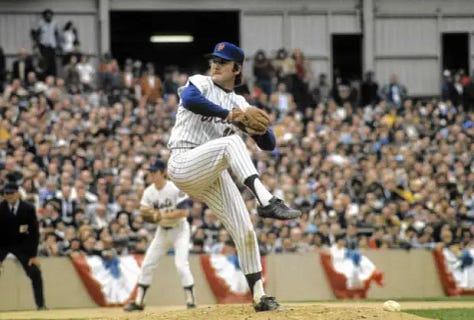
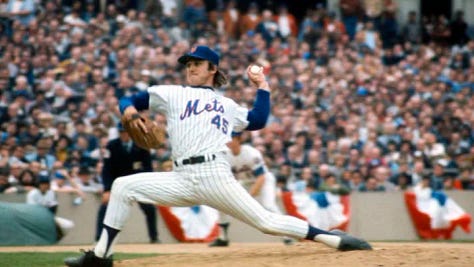
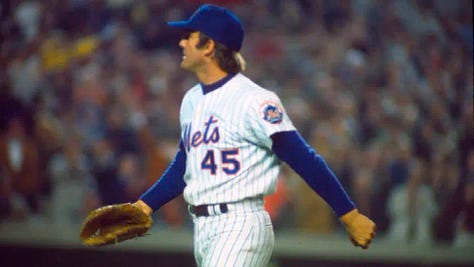
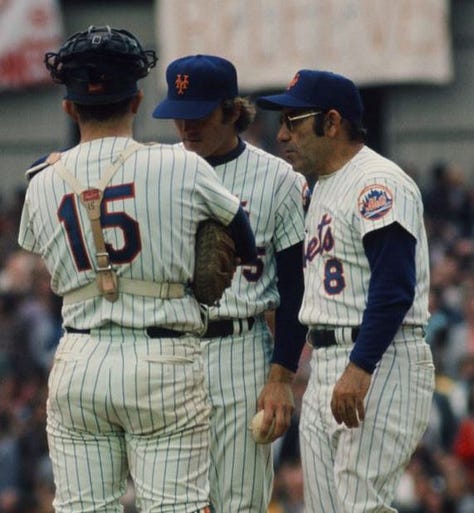
"He was my childhood hero.” said John Franco. “Growing up in Brooklyn I was a Mets fan mainly because of him. To me he was the essence of what a relief pitcher was all about. He was one of a kind."
"We had a lot of good times on and off the field,” added Ed Kranepool. “He was inspirational, had a lot of fun, was a happy-go-lucky guy. He lived life to the fullest. Every time I saw him he had a positive attitude. He was flamboyant, excitable extroverted, he would do anything for a laugh. I'm going to miss him."
"I remember seeing Tug on the field in a big league uniform before a game—I started crying,” Hank told Sports Illustrated in a 2002 feature story. “Damn, it'll choke me up right now if we keep talking about it. It was like we were both out there, like we were joined at the hip, like I was Tug McGraw, but not in an ego-blast kind of way. I couldn't have become the athlete I was without him there to compete against …”
In 2003, McGraw as diagnosed with a malignant and inoperable brain tumor. Less than a year later, in January 2004, McGraw passed away at age 59.
It’s been two decades since his death, but McGraw’s spirit lives on.
What’s your favorite memory of Tug McGraw? Continue the conversation by posting your comment below.
TUG MCGRAW QUOTES
"Ten million years from now, when the sun burns out and the Earth is just a frozen snowball hurtling through space, nobody’s going to care whether or not I got this guy out.”
“Ninety percent I’ll spend on good times, women and Irish whiskey. The other 10 percent I’ll probably waste.”
“I have no trouble with the twelve inches between my elbow and my palm. It's the seven inches between my ears that's bent.”
“On my first day of kindergarten, the teacher called the roll and when she finished she said, ‘Is there anyone whose name I didn’t call?’ I raised my hand. ‘My name is Tug McGraw.’ She looked at the roll and said, ‘I have a Frank McGraw.’ I said, ‘No, that’s my dad. He already went to kindergarten.’”





